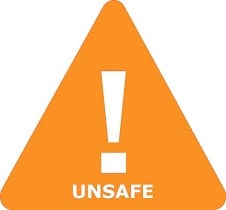Is BMS 936558 Safe in Breastfeeding
Question
I am a breastfeeding mother and i want to know if it is safe to use BMS 936558? Is BMS 936558 safe for nursing mother and child? Does BMS 936558 extracts into breast milk? Does BMS 936558 has any long term or short term side effects on infants? Can BMS 936558 influence milk supply or can BMS 936558 decrease milk supply in lactating mothers?
BMS 936558 lactation summary

- DrLact safety Score for BMS 936558 is 5 out of 8 which is considered Unsafe as per our analyses.
- A safety Score of 5 indicates that usage of BMS 936558 may cause serious side effects in breastfed baby.
- Our study of different scientific research indicates that BMS 936558 may cause moderate to high side effects or may affect milk supply in lactating mother.
- Our suggestion is to use safer alternate options rather than using BMS 936558 .
- It is recommended to evaluate the advantage of not breastfeeding while using BMS 936558 Vs not using BMS 936558 And continue breastfeeding.
- While using BMS 936558 Its must to monitor child for possible reactions. It is also important to understand that side effects vary largely based on age of breastfed child and time of medication in addition to dosage.
- Score calculated using the DrLact safety Version 1.2 model, this score ranges from 0 to 8 and measures overall safety of drug in lactation. Scores are primarily calculated using publicly available case studies, research papers, other scientific journals and publically available data.
Answer by Dr. Ru: About BMS 936558 usage in lactation
Recombinant immunoglobulin G4 monoclonal antibody which is indicated in certain cases of melanoma. At latest update no published data on excretion into breast milk were found. Its high molecular weight and protein nature make it theoretically impossible any excretion into breastmilk as well as the intestinal absorption by the infant gut: its low oral bioavailability hinders the pass to infant plasma from ingested breastmilk, except in premature and early newborn period, in which there may be an increased intestinal permeability. Although it would be possibly safe during breastfeeding, a long elimination half-life (26,7días) and the likelihood of side effects make prudent to avoid breastfeeding until more published data on this drug is available.The period to “washout" (time-period it takes for the drug to be completely eliminated from the body) that should be expected to resume breastfeeding would be about 134 days (5 half-lives) since the last dose.
Answer by DrLact: About BMS 936558 usage in lactation
No information is available on the clinical use of BMS 936558 during breastfeeding. Because BMS 936558 is a large protein molecule with a molecular weight of 146,000, the amount in milk is likely to be very low and absorption is unlikely because it is probably destroyed in the infant's gastrointestinal tract. Until more data become available, BMS 936558 should be used with caution during breastfeeding, especially while nursing a newborn or preterm infant. The manufacturer recommends that breastfeeding be discontinued during BMS 936558 therapy.
Alternate Drugs
Denosumab(Low Risk)
Ranibizumab(Safe)
Infliximab(Safe)
Omalizumab(Low Risk)
Ipilimumab(Unsafe)
Rituximab(Low Risk)
Secukinumab(Low Risk)
Nivolumab(Unsafe)
Abciximab(Low Risk)
Bevacizumab(Low Risk)
Basiliximab(Low Risk)
Belimumab(Low Risk)
Natalizumab(Low Risk)
Brentuximab Vedotin(Low Risk)
Ustekinumab(Low Risk)
Trastuzumab(Unsafe)
Certolizumab Pegol(Safe)
Cetuximab(Unsafe)
Cladribine(Dangerous)
Imatinib(Unsafe)
Vinorelbine(Dangerous)
Cyclophosphamide(Dangerous)
Dacarbazine(Dangerous)
Cisplatin(Unsafe)
Azelaic Acid(Safe)
Fluorouracil(Dangerous)
Busulfan(Dangerous)
Alemtuzumab(Low Risk)
Thioguanine(Dangerous)
Ipilimumab(Unsafe)
Gemcitabine(Dangerous)
Rituximab(Low Risk)
Dasatinib(Unsafe)
Docetaxel(Dangerous)
Bevacizumab(Low Risk)
Vincristine(Dangerous)
Nilotinib(Unsafe)
Tamoxifen(Dangerous)
Mitoxantrone(Dangerous)
Mercaptopurine(Safe)
Dactinomycin(Dangerous)
Trastuzumab(Unsafe)
Nivolumab(Unsafe)
Pazopanib(Unsafe)
Cetuximab(Unsafe)
Letrozole(Dangerous)
Vinblastine(Dangerous)
Exemestane(Dangerous)
Hydroxyurea(Low Risk)
Carboplatin(Dangerous)
Etoposide(Dangerous)
Bleomycin(Dangerous)
Erlotinib(Unsafe)
Paclitaxel(Dangerous)
Doxorubicin(Dangerous)
Ipilimumab(Unsafe)
Nivolumab(Unsafe)
Ipilimumab(Unsafe)
Nivolumab(Unsafe)
Ipilimumab(Unsafe)
Glatiramer(Low Risk)
Nivolumab(Unsafe)
